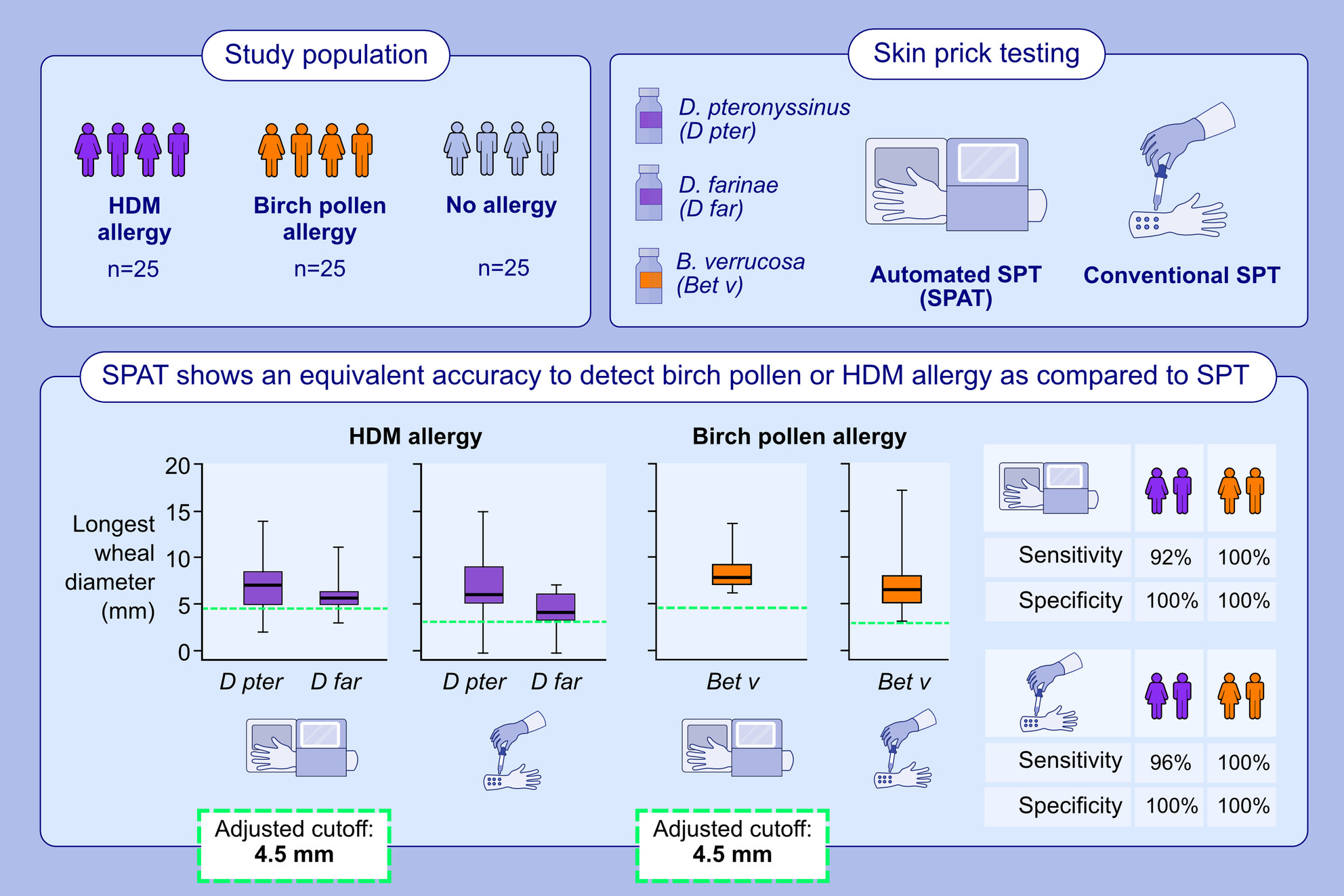Reduced intra-subject variability of an automated skin prick test device compared to a manual test.
Gorris S, Uyttebroek S, Backaert W, Jorissen M, Schrijvers R, Thompson MJ, Loeckx D, Seys SF, Van Gerven L, Hellings PW.
Respiratory allergies affect a significant portion of the global population and pose a major health and economic problem. The current methods for identifying sensitisation to allergens in symptomatic patients involve skin prick tests and serum-specific IgE analysis along with a detailed medical history. Skin prick tests are preferred due to their cost-effectiveness, immediate results, and better sensitivity-specificity profile compared to extract-based specific IgE analysis. However, there is a need for standardisation and automation of the skin prick test procedure to reduce operator and device-dependent variability.
A study was conducted at the University Hospitals of Leuven to compare a newly developed automated skin prick test called S.P.A.T. with the conventional manual skin prick test (SPT). The study involved 118 healthy volunteers, and the results showed that S.P.A.T. exhibited significantly lower variability in wheal sizes compared to manual SPT. The wheal sizes were larger in S.P.A.T. than manual SPT for both control and histamine pricks. The sensitivity and specificity of S.P.A.T. were comparable to manual SPT. Participants reported less discomfort with S.P.A.T., and no adverse events were reported during the study. Prick failures were less frequent with S.P.A.T. compared to manual SPT, and the time required to perform S.P.A.T. pricks was significantly shorter than manual SPT. S.P.A.T. also required less histamine solution compared to manual SPT.
The study concluded that S.P.A.T. provides increased reproducibility, tolerability, and reduces prick failures compared to manual SPT. It is a time-saving and cost-effective instrument for future allergy diagnostics. Further studies will determine the precision of S.P.A.T. in detecting allergies to inhalant allergens.
Discover the full article here.

Get in touch
Do you need more information? Are you interested in a live demonstration? Or would you like to give us feedback? We would love to hear from you.




